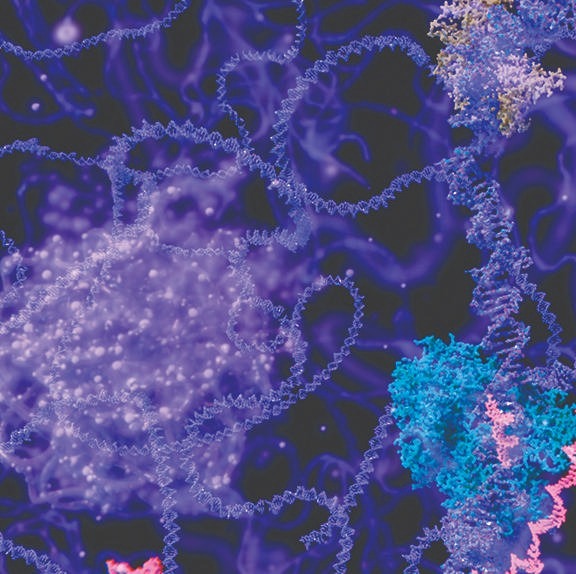This is an enormous book of somewhere between two hundred and two hundred and fifty thousand words. Nielsen explains that in it he "seeks clearly to articulate and render plausible naturalism and, what ineluctably goes with it, atheism. It seeks, that is, not only to articulate and explicate to perspicuously display naturalism, but as well to give sound and rounded defence of naturalism. It seeks to provide a narrative, replete with argument and with a vision of things, that makes being a naturalist something desirable to be."
| NATURALISM and RELIGION Kai Nielsen 506pp Prometheus Books $40.00 |
What gives me pause is the word 'ineluctably'. For here the word 'nature' is presumably construed as referring to the Universe and everything in it, the total possible subject matter of all possible human sciences. But the God (or Gods) of all the three great deisms is (or are) the essentially external initiating and sustaining cause (or causes) of the existence of the Universe itself. So why should we think that the study of nature, in the present understanding, warrants a positive as opposed to a negative atheism; an atheism, that is to say, in which the 'a', of the word 'atheism' is construed as it is in the words 'atypical', 'amoral' and 'asymmetrical'?
Most recent contributions to natural theology, both positive and negative including my own have paid scant attention to the founder of that field of study. Thus the index to Nielsen's book contains no entry for Aristotle. And if you look up the four for Plato you will find no actual mention of any dialogue. Aristotle, described in the Middle Ages as "the Master of all that know", is here crucially important for what he did not know.
For Aristotle lived before the emergence of any of the three great revealed systems, Judaism, Christianity and Islam. But since then almost everyone who has given sustained attention to natural theology has treated it as an enquiry about the existence of the logically presupposed source of a putative self-revelation; and for such enquirers accounts of these putative self revelations have been handed down and made familiar by generations of parents and pedagogues, of priests and rabbis, of imams and ayatollahs.
Surely to anyone who was for the first time and without prejudice entertaining the hypothesis that our Universe is the creation of an omnipotent and omniscient personal Being it would appear obvious that everything which occurs or does not occur within it must, by the hypothesis, be precisely and only what its Creator wants, indeed causes, to occur or not to occur. What scope is there for creatures in such a Universe to defy the will of their Creator? What room even for the concept of such defiance? For a Creator to punish creatures for what by the hypothesis that Creator necessarily and as such (ultimately) causes them to do would be the most monstrous, perverse, unjust and sadistic of performances.
Absent revelation to the contrary, the expectations of natural reason must surely be that such a creator God would be as detached and uninvolved as the gods of Epicurus. Indeed some Indian religious thinkers not prejudiced by any present or previous Mosaic commitments are said to describe their monotheistic God as being essentially and in the nature of the case, "beyond good and evil". And the closest which Aristotle's God comes to prescribing or proscribing any kind of human conduct and it is almost as far as it would possibly be from actually doing so is when in his Nicomachean Ethics (not Aristotle's God but) Aristotle tells us that "the divine life, which surpasses all other in blessedness, consists in contemplation."
* * *
Since my own two anti-theological books were both written long before either the development of the Big Bang Cosmology or the introduction of the Fine Tuning Argument from the physical constants, I will seize this chance to indicate my response to these arguments. It is that while neither can provide substantial evidencing reason for accepting the existence of God, both may constitute impressive confirming evidence for beliefs already held.
Thus the Big Bang Cosmology appears to reveal that the Universe had a beginning. It therefore confirms an essential of traditional Roman Catholic teaching. When Aquinas developed the Five Ways, which did not even attempt to prove this essential, it was apparently rumoured that he had thus lapsed into heresy. He responded, in a pamphlet happily entitled 'Concerning the Eternity of the World Against the Murmurers', that although he was unable to produce a philosophical argument to prove that the Universe had a beginning he of course believed it as a truth of the Catholic faith.
The Fine Tuning Argument is believed by its sponsors to constitute a powerful evidencing reason for believing in a God who intended that the Universe He created should contain a planet upon which the human race could and would evolve. While again not accepting that this constitutes such a reason for unbelievers, I would again insist that believers are right to see it as confirmation.
To illustrate these points about confirmations of antecedent beliefs I recommend a book recommended to me by Richard Dawkins for its total discrediting of Michael J Behe's Darwin's Black Box: The Biochemical Challenge to Evolution (New York: Simon and Schuster, 1996). That book is Kenneth Miller's Finding Darwin's God (New York: Harper Collins, 1999). Miller is a cradle Catholic, but that does not prevent him from destroying Behe's argument point by point, and making scathing comments on Behe's failure to attend to recent relevant research findings in what is after all Behe's own field.
Naturalism and Religion is available from Amazon UK

